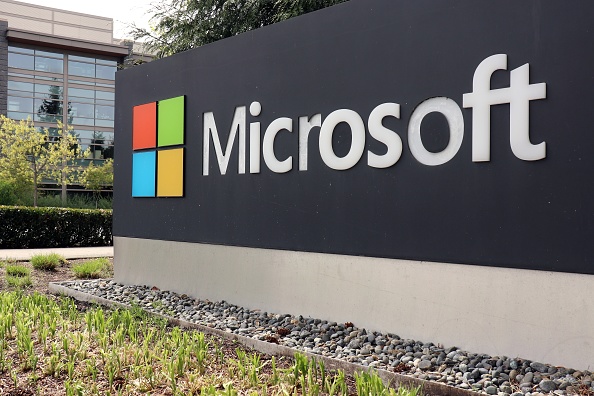By CGTN Africa

The company announced its Q2 earnings on 27th Apr 2021. (Photo by Toby Scott/SOPA Images/LightRocket via Getty Images)
The Nigerian government and Microsoft are partnering to train five million citizens over the next three years as part of efforts to build the country’s digital economy.
“We believe in the future of Nigeria, and we are excited as a company to add to our investments,” says Brad Smith, Microsoft President. “Together, we have an enormous opportunity to put technology to work, create jobs, to foster the technology ecosystem across Nigeria, and to use technology to preserve the best of the past and take us into the future.”
To help reach this goal, 1,700 trainers will provide blended online and in-person training courses to the country’s youth as well as government workers.
“We are setting ourselves a big goal, to bring access to digital skills to five million people in Nigeria over the next three years,” continues Smith. “But this is not something we can do by ourselves. We will equip master trainers and, along with them, are committed to creating thousands of new jobs.”
Nigerian Vice President Yemi Osinbajo explained that Microsoft’s extensive experience in using technology for public and social good made them an ideal partner.
“Leveraging Microsoft’s Technology tools which can be deployed to minimize governance risks and block loopholes, working with the Economic and Financial Crimes Commission (EFCC), we will seek to use cutting edge analytical and case management tools to plug holes in our public sector system as well as confront white-collar criminality efficiently,” VP Osinbajo said. “This pillar will also serve a vital social function. By using Microsoft’s Artificial Intelligence technology and resources to preserve and promote our major languages so we can revitalize these important aspects of our culture.
Hausa, Yoruba, and Igbo are three major indigenous languages that Microsoft and the government will be working to preserve through the project.
“This is one of my favourite projects that we pursue around the world. It uses the most advanced technology of the 21st century to nurture and keep alive the culture that has been so important for humanity from the centuries past,” Smith added.

